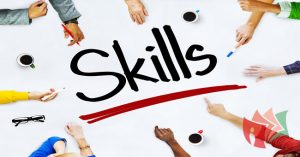
SKILLS SCHOOLS ARE NOT TEACHING
Skill schools are not teaching. Instead of learning vital life skills like how to deal with money, negotiate, or communicate, youngsters are mostly taught to memorize facts. While this is advantageous, it shouldn’t come at the price of not learning essential life skills.
SKILLS SCHOOLS ARE NOT TEACHING
The belief that parents should teach their children these “life” skills is widespread. However, not all parents are capable of doing so, and many individuals think that education at school suffices. This is among the primary issues facing Indian education. We’ve put together a list of practical life skills that aren’t taught in schools.
1. Thinking

The stakes of your life’s obligations and tasks are really high. Your activities affect us and other people in the actual world, both immediately and over time. Making the right choices could mean the difference between success and failure, happiness and regret, etc.Not only for the sake of success but also for the sake of wisdom itself, we need to be ready with the ability to think through situations and events that will actually occur in our life. Effective learning strategies are never taught to students. Teachers want their pupils to understand the material as well as possible.
2. How to Invest and Handle Your Money

It is indisputable that proper money management is important. Personal money, saving, and trading are not extensively covered in banking, accounting, and business schools, which instead focus on accounting systems, financing, and corporate structures. Rather than focusing on personal budget management, these workshops teach students how to be recession-ready like pros.
3. Rights
Although the Rights Declaration is taught in some schools, it is rarely discussed how these expansive rights apply to us in our daily lives. Understanding and exercising your rights as a citizen is essential, as is appreciating the freedoms that the US offers.Being involved in politics, both locally and nationally, and knowing who the leaders are such as state lawmakers and local mayors is also beneficial. Additionally, laws that are put to a vote or pass or fail Congress have an effect on our daily lives as citizens.
4. Speaking in Public
The art of public speaking is rarely taught in schools, despite the fact that many classes need presentations. While public speaking classes are not required in the K–12 curriculum, speech communication courses may be offered at universities. Since public speaking is so common in the business and is a requirement for presentations throughout a student’s academic career, we believe that everyone should be forced to learn it. Students should be taught how to speak in front of an audience in a safe and supportive setting rather than being expected to know how to do it naturally.
5. Knowledge of Finances

Another crucial life skill that is not taught in schools is money management. One of the most common complaints about schools is this, and some school boards have even said that it is the responsibility of the parents in response to the criticism. There aren’t any classes that teach pupils the fundamentals of personal finance. They are not instructed on how to adequately budget or save money, how interest works, how to pay their credit card bills, or the significance of doing so.
Summary
Students who participate in a skill-based program are encouraged to become creative, knowledgeable, passionate, and content students and global citizens who can write, read, think critically, and solve mathematical problems. Additionally, a skill-based education allows us to guide the child in the proper direction.